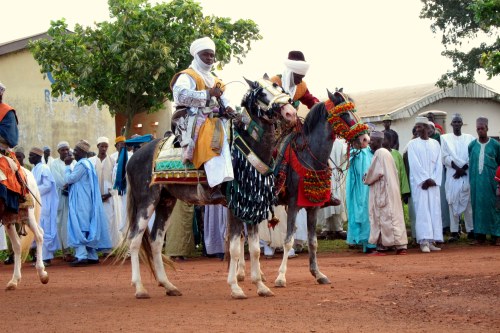During the month of Ramadan, Muslims fast from sun up to sundown to honor the month that the Quran was revealed to the Prophet Mohammed. Eid al-Fitr celebrates the end of the month—and the end of the fasting. The prolonged fasting isn't just about food—it also includes abstaining from taking medications, drinking any liquids (including water), smoking, and having sex.
"Eid al-Fitr" is a pretty literal translation of the event that's being celebrated: "Festival of the Breaking of the Fast," or "the Feast of Fast-Breaking."
The Islamic calendar is based on lunar cycles, as opposed to the Gregorian calendar, which is based on the solar cycle. New months start and end with each new moon. The average new moon appears every 29.53 days, so the lunar months are a bit shorter compared to the Gregorian months, which usually last 30 or 31 days. Thus, every year, Ramadan is held about 10 days earlier than it was the previous year—at least, that is, in relation to the Gregorian calendar.

Top 5 facts About Eid Al-Fitr
1. EID AL-FITR TYPICALLY LASTS FOR THREE DAYS.
The festival traditionally lasts for three days, but depending on how it falls on the calendar, the parties and festivities could last much longer. For example, if the three days fall mid-week, Muslims will likely still be celebrating over the weekend.
2. ON EID MORNING, MUSLIMS CLEANSE THEIR BODIES AND DON NEW CLOTHES.
Before leaving to perform morning prayers, Muslims wake up to cleanse their bodies in a ritual called "ghusl." Then, similar to getting new clothes for Easter Sunday, Muslims often don something new or grab their finest threads and decorate their hands with elaborate henna patterns. Some people wear traditional dress, while others opt for contemporary clothing.
3. THERE ARE EID GREETINGS.
"Eid Mubarak," which means "Have a blessed Eid!," is pretty common.

4. THERE ARE GIFTS INVOLVED.
After a month of sacrifice, Eid al-Fitr is a time of abundance—and not just abundant food. Gifts are often given, especially to children. These gifts of money, accessories, home goods, or flower are called "Eidi."
5. THE WHITE HOUSE HELD ITS FIRST EID AL-FITR DINNER IN 1996.
Though the first iftar dinner—the daily meal that Muslims break their fast with when the sun sets during Ramadan—hosted by the White House happened in 1805 when President Thomas Jefferson held one for the visiting Tunisian envoy, First Lady Hillary Clinton hosted the first official Eid al-Fitr dinner in 1996, and the Clintons continued the tradition every year after. The tradition of hosting Ramadan or Eid dinners has continued with every president since—George W. Bush hosted one every year, and Barack Obama hosted his last one in July 2016.



0 Comments